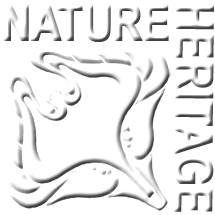Lectures on wild meat and wild plant use by Baka Pygmies in Cameroon
The UK Darwin Initiative project "Enabling Baka attain food security, improved health and sustain biodiversity" (2017-2020; project reference number 24-09) aimed at improving the agri-food systems, and as a result reduce the impact on wildlife, in southeastern Cameroon. A crucial component was to understand the hunting system of sedentarised Baka Pygmies and to encourage sustainable wildlife extraction.
We worked with 10 Baka settlements along the main road south of the Dja Nature Reserve in in southeastern Cameroon. Data was gathered on the use of domestic crops and wild foods to determine their importance in meeting the nutritional needs of the target population. In parallel, we assessed the human health status of villagers to determine levels of malnutrition and disease, and potentially establish links with foods consumed.
We worked alongside hunters in the community to map existing community hunting grounds, understand current hunting practices, and measure offtake. Independently, we assessed the status of mammal and land birds in the hunting areas defined by the study communities using camera trapping. Through community consultation, and informed by the data collected through the project, a sustainable hunting plan can be developed.
Here, we present a series of PowerPoint presentations highlighting the project´s research outcomes.

The lectures
Lecture 1: Introduction to the Darwin Initiative project
Lecture 2: Introduction into hunting and eating wild animals
Lecture 3: Poverty in Baka Pygmies
Lecture 4: Wild meat hunting by sedentarised Baka Pygmies in southeastern Cameroon
Lecture 5: Hunting territories and land use overlap in sedentarised Baka Pygmy communities in southeastern Cameroon
Lecture 6: Camera-trapping survey in Baka Pygmies hunting territories in southeastern Cameroon
Lecture 7: Baka health
Lecture 8: Ethnobotanical survey of wild edible plants used by Baka People in southeastern Cameroon
Lecture 9: Hunting rules and traditions in Baka people in southeastern Cameroon

